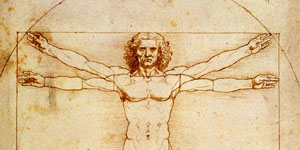Post Operative Instructions
Post Op Instructions for Facial Surgery Patients
1. Head elevation
It is important to keep your head elevated at all times. This helps to reduce blood pressure in the head, and decreases the risk of bleeding. Plan to sleep either in a recliner, or with multiple extra pillows on the bed. If you lay flat to sleep,
it is very likely that you will wake up swollen and bruised!
2. Cold compresses
To reduce swelling and pain, as well as reduce the risk of postoperative bleeding, you should plan to use cold compresses at frequent intervals beginning as soon as you get home from surgery. You can use a bowl of ice water and a wash rag, a bag of frozen peas, or the gel packs that you place in the refrigerator, whichever you prefer. The cold compresses should not be used continuously, but off and on, every fifteen minutes or so throughout the day.
3. Activity
Avoid any strenuous activity or heavy lifting, until advised that it is safe to do so. Avoid bending over in such a way that your head is down, as this can increase the blood pressure in your face and eyes, and lead to bleeding and swelling. For example, be careful when tying your shoes. You may be tempted to use the downtime after surgery to give your house a good scrubbing, or clean out the garage - please resist this temptation until you are well healed!
4. Walking
Walking is a good way to reduce the risk of developing a blood clot, and we encourage moderate walking after surgery. You should plan on walking every hour starting the day of surgery, even if this is just a few laps through your home. (You don't have to wake up at night to walk.)
5. Eyelid surgery
If you had surgery on your eyelids, then please use the antibiotic ointment we have prescribed - this will defend against infection, and help to soothe discomfort. You may experience some dryness, itching, or a burning sensation. Please try not to rub or scratch your eyes. The ointment can make your vision slightly blurry. If you experience any other visual problems, please call immediately.
6. Bathing
Your surgical incisions need to remain dry, therefore do not wash your hair or face until told to do so at your office visit. It is okay to bathe from the chest down, but you should avoid swimming pools or hot tubs until well healed.
7. Swelling
You can expect some swelling for a few weeks after surgery. If you notice that one side begins to swell significantly more than the other, or if both sides become more swollen, tense or abnormally painful, please notify us immediately. Some small areas of bruising are common after surgery, especially for surgery on the eyelids. Frequent cold compresses will help to decrease bruising. However, if large areas of bruising develop, please notify your physician.
8. Driving
You should not drive a car until you have completely stopped taking narcotic pain medicine, and you feel good enough to safely handle a vehicle in an emergency. You also need to be sure that any eyelid swelling has gone down enough that you can see well.
9. Antibiotic
You may receive a prescription for an antibiotic to take by mouth, and / or an antibiotic ointment to use on your incisions. If you are discharged in time to fill the prescription, please do so and start the medicine that same day. If taking antibiotics by mouth, you may want to eat some yogurt or buttermilk daily to lessen the chance of developing a yeast infection or stomach upset.
10. Pain
You should expect a moderate amount of pain after surgery. Your physician will prescribe an appropriate pain medication.
Some medications, such as Lortab and Percocet, contain Tylenol - therefore you should not take any other medication containing Tylenol (Acetaminophen)
while you are taking the pain medicine. Too much Tylenol can damage your liver - you only have one liver, and you need it.
If you are able to take NSAID's (the class of medicine which includes ibuprofen, Motrin, Advil, and Aleve),
you may find that alternating your narcotic pain medicine with some Advil or Aleve provides better pain relief than taking either one alone.
11. Diet
It is important to eat a balanced diet after surgery. Protein (meat, fish, eggs, peanut butter) provides the building blocks your body will need to heal from surgery. Fruits and vegetables provide the vitamins and minerals that are also needed for healing. If you are taking a narcotic pain medicine, it may cause constipation - eating foods with fiber, and taking yogurt or probiotics, can help prevent this problem.




